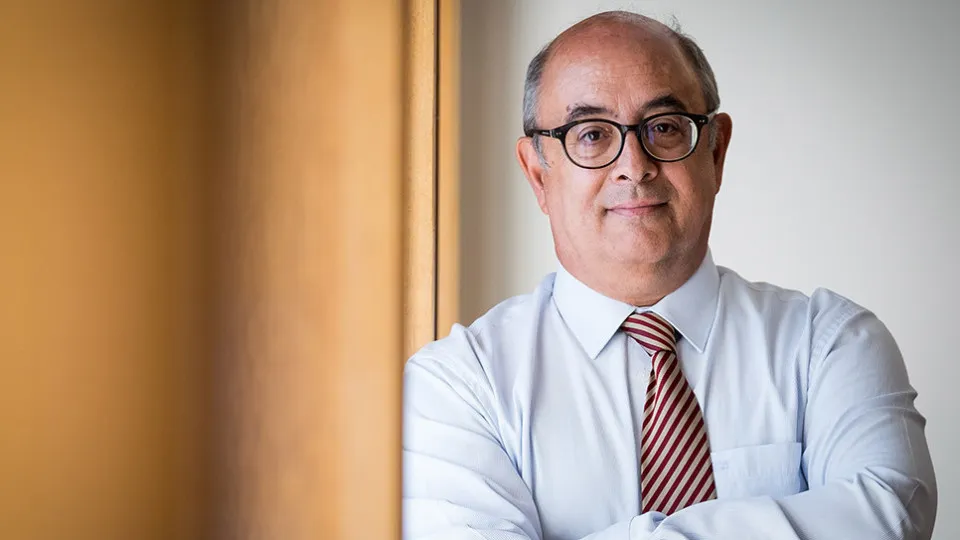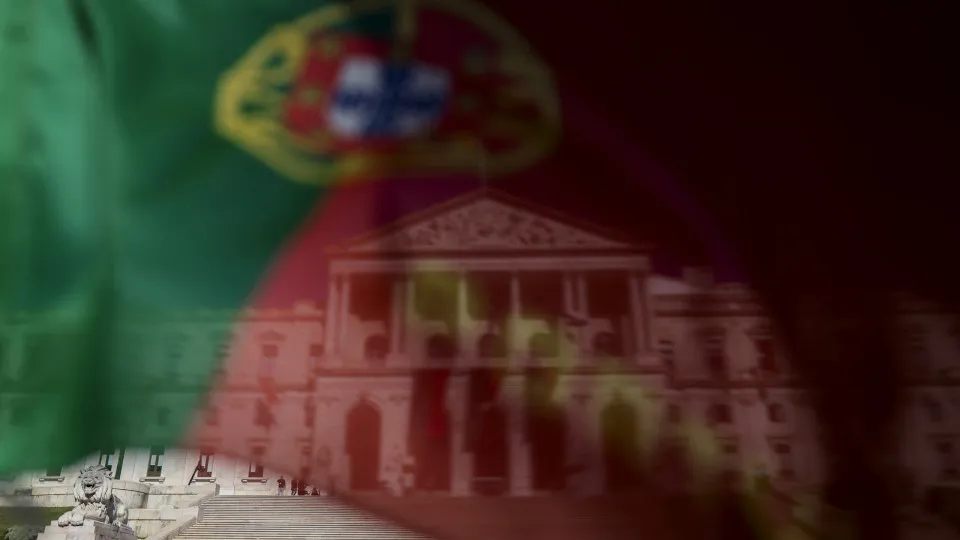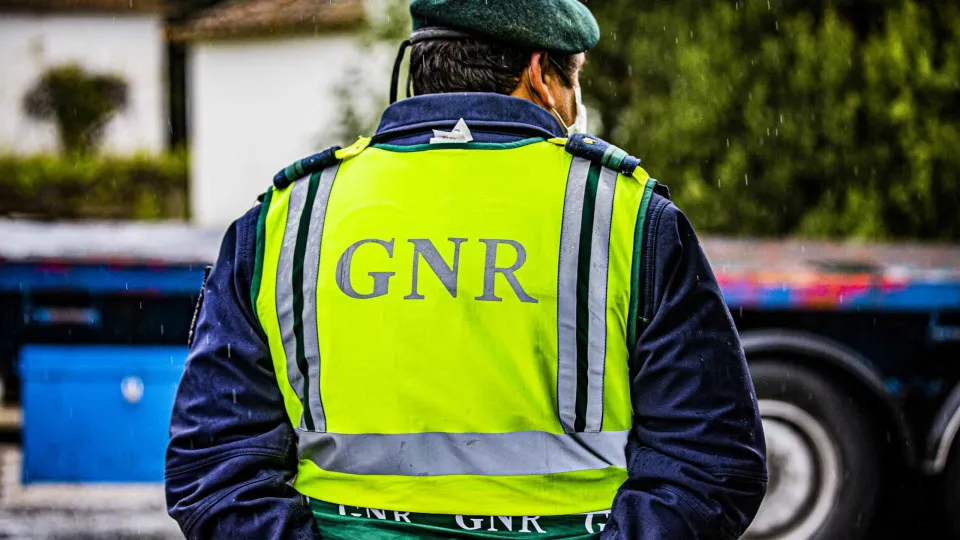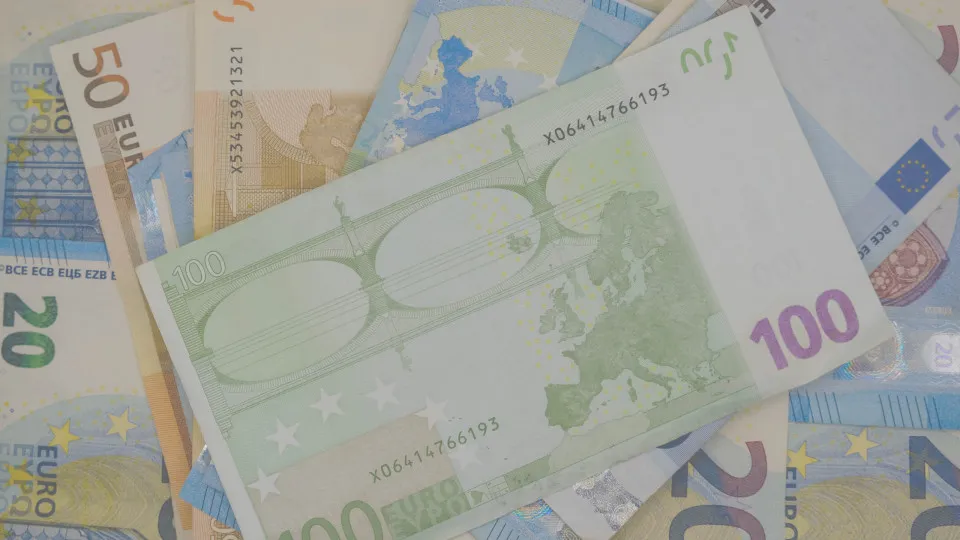
José Alberto de Azeredo Ferreira Lopes, a lawyer, university professor, and former Minister of National Defense in António Costa’s 21st Constitutional Government, declared that “we are experiencing a significant crisis” regarding Fundamental Rights—basic rights and freedoms that protect citizens—emphasizing that “the Council of Europe and then the European Convention on Human Rights took fundamental steps to ensure more dignified societies”.
In an interview with Notícias ao Minuto, the former official opined that Human Rights, for populist and nationalist movements, are “a tool” to demonstrate that “an excess of protection of human beings is bad for society,” thereby promoting “intolerance.” “Europe is in a more fragile and vulnerable international strategic position,” he pointed out.
He also mentioned that Europe is not experiencing its “happiest moment” due to wars, although this has been ongoing “since the beginning of the century” because, since then, there has been “a permanent crisis”.
When asked which human right might be most threatened, he noted that “several are not in great shape,” highlighting that we are living in “very difficult times,” particularly in terms of press freedom and freedom of expression.
Never before has there been such talk about such a restrictive interpretation of Fundamental Rights, which today are seen as a democratic nuisance
The Catholic University, through a conference, proposed to celebrate two important dates regarding human rights – the 75th anniversary of the European Convention on Human Rights and the 25th anniversary of the European Union’s Charter of Fundamental Rights. How important is it to celebrate these dates today, in what seems to be a time of alert?
We are facing a situation where I am unsure if it’s a significant retreat in the protection of Fundamental Rights. Good things should always be celebrated, and I believe Europe owes much to the European Convention on Human Rights (ECHR) and to the actions of the European Court of Human Rights (ECHR). Although with less practice, the agreement 25 years ago on a Charter of Fundamental Rights of the European Union was also an important step.
We are experiencing a significant crisis concerning many things we once considered more or less established, and which we did not even discuss. The progression of populism and extremism is now undeniable in Europe, notably in the parliamentary sphere, and this affects how not only Fundamental Rights are interpreted but also how policies are defined to protect them or, unfortunately, to challenge them.
Never before has there been such talk about such a restrictive interpretation of Fundamental Rights, which today are seen as a democratic nuisance, something that some political powers believe they must endure, but I don’t think so. This is what defines our societies; it also defines what our European continent is and has been since its post-war construction, and I repeat, from that point of view, the Council of Europe and then the ECHR made fundamental steps toward creating more dignified societies where the interpretation of Fundamental Rights was principally in favor of the person and not against them.
Regrettably, Europe in general today seems to be in a weaker, more vulnerable international strategic position
Do populist and nationalist movements also pose a risk to the European Human Rights system?
For such movements, Human Rights are a tool in their efforts to demonstrate that excess protection of human beings is detrimental to society, thereby promoting intolerance, fostering a dislike for those who are different, who don’t think like us, who don’t share the same religion, or have a different skin color. It also implies that the protection of Human Rights is viewed as anti-economic, against development, and progress; it’s something old-fashioned, which above all only protects those who are useless in society, or at least less useful.
Regrettably, today, Europe in general seems to be in a weaker, more vulnerable international strategic position, and we have lost a significant credit of being a space of freedom, welcome, and tolerance. Democracy becomes weaker and less strong when the protection of Human Rights diminishes. At least, the democracy that some call liberal democracy, which was based on several fundamental ideas—a notion of freedom, protection of the weakest, solidarity, and also justice—is fading away, weakening democracies.
Currently, there are about 200 states in the world, and only 29 have liberal democracies. This should make us understand with humility that one day we may become a clearly minority regime. In terms of Fundamental Rights and democracy, we believed there was no turning back, that this was always a forward path, a progression. Human societies were supposed to become increasingly just and dignified, but that’s not what’s happening. We understand that unless we are careful, our democratic regimes are indeed at risk.
For a long time, we claimed a sort of moral superiority, practically over all other regimes, and refused to be compared to an authoritarian state—we would never accept being compared to a state that did not respect press freedom, that expelled those seeking protection. We must be cautious, or many of these dimensions will be knocking at our door. We face other very challenging issues related to climate change, the right of self-determination of peoples, relations between court competencies and acts of aggression, and algorithms.
Artificial intelligence, populism, fake news, information campaigns, conflict regulation, Human Rights protection, prisoner rights protection, and migrant rights may pose concrete, profound questions that challenge some things we once considered established when looking at the European Convention on Human Rights or the Charter of Fundamental Rights.
Is there a lot of tension between rights and duties in Europe today, resulting from the current panorama (wars, right-wing ideologies)? Considering your experience as an academic and politician, do you believe Europe strikes this balance, or are challenges piling up?
There are challenges, of course. I don’t think this is the happiest moment in the European continent, and it isn’t because I also believe that since practically the beginning of the century, we have been living in a permanent crisis.
We had the Kosovo war at the end of the last century, the war in Afghanistan, and the Iraq war, which deeply divided Europe and created wounds that were difficult to heal. We had the economic-financial crisis, the disaster triggered by the Troika, followed by recovery. We exited that with a bit of a struggle and faced Brexit, which directly threatened one of Europe’s foundational pillars: the idea that who enters never leaves.
Then came COVID, and as we were emerging from it, we entered a war, the aggression by Russia against Ukraine, leaving us completely without bearings. This is a foundational moment of this century, summoning risks not felt since World War II. Subsequently, there was the complex path of defining Europe’s course in this conflict. While we were still struggling, the Gaza War emerged following the terrorist attacks on October 7, confronting us with our inability to act uniformly in similar situations.
We cannot allow an aggressor, someone acting so barbarically and violently against a neighboring country, to emerge necessarily triumphant, or at least we must do everything possible to prevent it, because if we let it happen, we will pay the price later.
I believe we have maintained the course, and I still believe that many of us live in democracies and that, despite everything, this continent continues to be, in my view, the one that most authentically interprets human dignity, protection of human beings, protection of the most vulnerable. We have maintained a fundamental message: there can be no democracy without press freedom, freedom of expression without press freedom, no democracy without respect for the separation of powers, and no democracy without minimum respect for democratic choice and Human Rights.
We still need to take care of our home because our home is under threat
What I especially don’t believe in is thinking that in a kind of populist appeal to a sort of global democracy where we don’t need to take care of our home. No! We still need to take care of our home because our home is under threat, not necessarily based on territory or boundaries. It is a threat that enters our homes, through information campaigns, through image and video production (which we can’t discern whether true or not), in a situation of less knowledge, less reading habit, less respect for credible information. We often prefer what pleases us more than what is truly the truth. The idea of alternative truth or alternative facts has entered our jargon. All these are threats to the functioning systems of Fundamental Rights protection.
Some may not want to hear it, some may think it’s outdated and out of time, but I still believe it’s fundamental for us all to be around the table discussing such issues—the rights of minorities, vulnerable people’s rights, why talking about people’s self-determination issues might still be necessary, and why we must also address this ongoing threat of environmental protection and the risk that hangs over our societies with global warming, with natural disasters increasingly surrounding us.
You were Minister of Defense between 2015 and 2018. At that time, there was no Ukraine war, but tension with Moscow was already present (the Russian threat was a theme at the Warsaw NATO summit in 2016), and the refugee crisis was ongoing. In hindsight, do you think Europe adequately prepared for the current scenario?
I don’t think so. In 2014, when Russia occupied and annexed Crimea, we were a bit scared, as peoples, but immediately shrugged it off. I wasn’t in the government yet, it was my predecessor, but the NATO Summit in Wales didn’t even have a theme. Nothing threatened us; we were doing well. An organization like NATO struggled to justify its existence, and in this sense—a bit ironically—the occupation of Crimea saved NATO, giving it new energy, form, and purpose. That’s why there was always talk about an eastern flank and a 360-degree NATO, which pretended to look in every direction. NATO didn’t look in every direction; it focused on the eastern flank, becoming a dominant element of European defense policies, which translated to a set of decisions not all states felt necessary.
We sometimes forget that in 2014, we were still under the Troika’s control. We forget how long it took to regain our political and financial sovereignty. We forget that, at the time, we looked at the eastern flank and the Russian issue, and it seemed quite distant, particularly to those farther from these theaters of operations. A relative attention was felt, primarily among some Eastern countries that always insisted on rapid proceeding to greater defense investment and those who thought it would be resolved.
Over time, the tension manifested as pressure from our American friends, insisting they couldn’t indefinitely maintain us and that we needed to invest more in defense, but by investing more, we needed to buy American. There were countries bypassing the issues systematically, like the Netherlands’ prime minister at the time, spending a crawling 1.1% or 1.2% on defense. The Netherlands spent little on defense, among countries with the lowest defense budget, but this wasn’t even a unique case. Once the risk notion dissipates, when suddenly ‘we scratch’ with other issues like COVID, we grow indifferent to defense. We can now say otherwise and rewrite the past, but in 2019, 2020, and 2021, most states didn’t know how to handle this pandemic, let alone reflect on reinforcing defense budgets.
Defense investment—though necessary—must be done carefully
Our societies will face more choices like these. This implies fertile ground for populism because, if we are not doing well and if there is no employment, it’s the foreigner’s fault; if we feel insecure, it’s the other’s fault. Therefore, strangely, despite seeming strange, defense investment—though necessary—must be done carefully. We risk making inefficient purchases; it always boils down to metrics. ‘You must spend 3.5% annually on defense. Oh, and how do I do that? Buy! But buy what? Buy.’ My fear is that we’re buying things like going to the supermarket, lacking integration and collective thinking regarding European defense needs, with everybody typically and legitimately attempting to sell or buy from national companies.
Investments in defense are expenses, contrary to some claims. It will come from our pockets, not from someone called ‘Mr. Investment’. However, being an expense, it can be an investment in creating an industry, a more modern technological base, establishing partnerships, acquiring knowledge, and technological know-how. What I fail to see is the absence of an integrated definition of what European defense should be.
Concerning the war in Ukraine, considering your governing experience, do you foresee a path to effectively resolving the conflict?
My experience here is mainly as a scholar of International Relations and International Law. Firstly, we face a serious breach of International Law, the kind leading to the United Nations Charter’s drafting. The notion of international peace and security has always been considered a value of ours, supporting international society; Russia, with its aggressive behavior, directly attacked this principle, clearly established in the UN Charter. Further, as states endorsed respecting the prohibition against threats and force.
Also, considering Ukraine’s territorial integrity, a catastrophic end to the conflict regarding European security, and International Law itself, should Russia achieve its goals without cost, would have been a disaster, but fortunately, it’s unlikely to occur. However, this war, like any war, isn’t eternal. Europe is practically in standby since February 22, considering it an existential threat to its security and political survival.
What would be acceptable for us to end this war?
We’ve repeatedly discussed ceasefire, an extreme resolution assuming the war ends with a complete Russian withdrawal. Even a child could conclude that. We have a slight problem, though, as Russia also deems winning this war—or at least not losing it—vital for its regime’s survival.
Poor Ukraine views this war as defining its continued existence as a sovereign state. Europe perceives this war as determining its geopolitical reality and capacity to prevent potential or future Russian aggression against European territory. Russia considers this vital, inferring threats from European countries, especially the United States and NATO. No categorical guarantee exists of continued US support for Ukraine. Currently, Europeans finance all Ukrainian support. This is great, but without a money tree, it implies material fatigue. European publics show less enthusiasm today regarding the war’s societal cost.
I am uncertain whether we possess any capacity to address Ukraine’s issue of having fewer soldiers than Russia. On the battlefield, however heroic and undoubtedly so, they number fewer, raising a worrying issue requiring us, at least, to clarify what would be acceptable. Presently, Russia controls around 19% of Ukrainian territory.
Human Rights Crisis? Using the judiciary to smother press freedom is one of the most vivid symptoms
If you had to choose a human right you consider most threatened in Europe today, what would it be?
Several aren’t in great shape. One I believe is truly threatened is freedom of expression and press freedom. We live in challenging times in this area. Freedom of expression never fed anyone, but along with press freedom, it can define the rest of the Fundamental Rights. For instance, if our voice couldn’t be expressed, if there’s no stage, or if not heard, all other Fundamental Rights enter a crisis, as currently happening.
Cancel campaigns, both-sided woke campaigns, model business degradation, freedom defining press freedom, unfair competition, large platforms entering our homes defining what we can see or hear, traditional information model destruction attempts. Perhaps I’d choose this as most representative of observed societal change within the EU but generally worldwide.
Using the judiciary to smother press freedom is among the most vivid, expressive symptoms of this crisis I’m discussing. Imagine a round room: inside is press freedom exercise—maintaining us functional, informed, accessing information, exercising citizenship rights. If that central piece falls, generally and cascadingly, everything else could greatly suffer.
To conclude, if a European citizen feels their human rights violated, who should they turn to?
European citizens should first approach national bodies, fearlessly, whether purely judicial or para-jurisdictional, like the Ombudsman. They shouldn’t fear organized civic action, being Human Rights activists, assisting NGOs, many deserving praise for their intervention. Fearlessly, they should report, preferably non-anonymously, these facts to media outlets, as reconstructing information arises from citizen-media dialogue often forgotten as radical existential basis.
Then, they shouldn’t fear approaching competent bodies, which guarantee irreplaceable protection at the European level. Hence, appealing to the European Court of Human Rights remains challenging, achieving issues meriting attention post-filter, but it’s still possible. Visit the Strasbourg Court or Council of Europe website, you’ll find well-organized information quickly on required steps.
Recently, we wrote an article on prison conditions with a colleague. Portugal’s condemnation for inhumane prison conditions was somewhat scandalous due to Romanian detainee complaints mostly. Portuguese fail to complain—now they do! Lacking citizen activism tradition, believing rights exist for exercise, seeing exercising a right isn’t aggressive, unpleasant, or impolite, it’s a citizenship condition and circumstance. Thus, we lack defenses, lacking citizen literacy.
Presenting our cause, even to the European Court of Human Rights, is surprisingly easy and indeed friendly toward Human Rights, despite potential disagreement over particular agreements.




